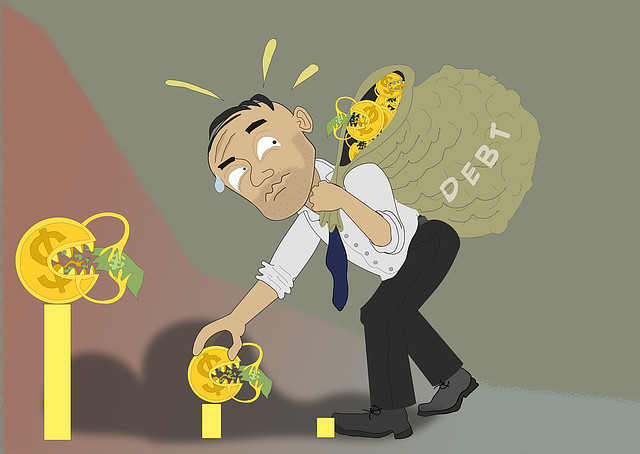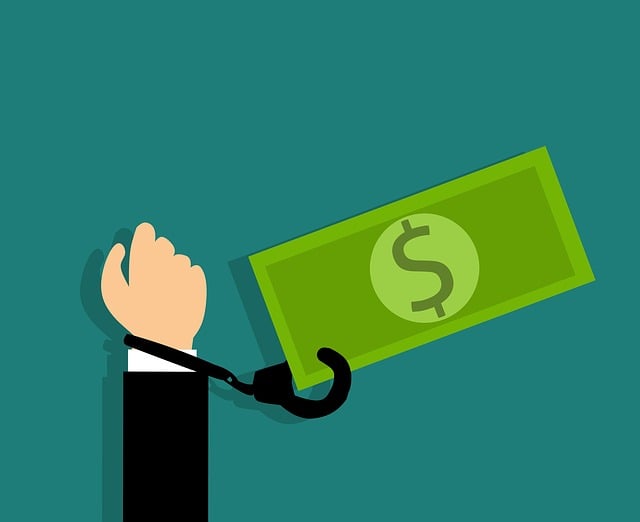Unsecured debt consolidation loans streamline multiple high-interest debts into one lower-rate loan, saving on costs and simplifying management. However, strict borrowing criteria and credit score impacts require careful consideration before securing a loan, ensuring alignment with long-term financial goals. Research lenders for transparent terms, compare offers, and implement strategic repayment plans prioritizing high-interest debts to maximize savings and maintain good credit. Weigh lower monthly payments against long-term costs, calculate total repayment, and understand credit score implications for informed decision-making.
Looking to save on interest payments? Strategic debt consolidation through unsecured debt consolidation loans can be a game-changer. This article guides you through the process, from understanding these loans to choosing the right type and lender. We explore the benefits of consolidating high-interest debts and offer effective strategies for repayment. Additionally, we highlight risks and considerations to help you avoid pitfalls.
- Understanding Unsecured Debt Consolidation Loans
- Benefits of Consolidating High-Interest Debts
- Choosing the Right Loan Type and Lender
- Effective Strategies for Repaying Consolidated Debts
- Avoiding Pitfalls: Risks and Considerations
Understanding Unsecured Debt Consolidation Loans

Unsecured debt consolidation loans are a popular option for individuals looking to simplify their financial obligations and save on interest expenses. Unlike secured loans that require collateral, unsecured debt consolidation loans offer flexibility in repayment terms but come with a higher risk for lenders. This type of loan allows borrowers to combine multiple debts into a single, more manageable payment, typically with a lower interest rate than the original debts.
For students burdened by student loans or individuals with high-interest credit card debt, unsecured debt consolidation can provide relief. Online calculators make it easy to estimate potential savings and repayment terms. While there are risks involved, such as stricter borrowing criteria and potential negative impacts on credit scores, understanding this option is crucial for making informed financial decisions, especially when compared to continuing to pay multiple debts with varying interest rates.
Benefits of Consolidating High-Interest Debts

Debt consolidation is a powerful strategy to gain control over your finances, especially when dealing with high-interest debts. By consolidating multiple loans or credit card balances into one single loan with a lower interest rate, borrowers can significantly reduce the overall cost of their debt. This is particularly beneficial for unsecured debt consolidation loans, where individuals can reframe their several high-interest payments into one manageable and often more affordable repayment plan. Not only does this simplify financial management, but it also allows borrowers to pay off their debts quicker by concentrating their efforts on a single loan with favorable terms.
When should you consider an unsecured debt consolidation? This method is particularly suitable if you have multiple debts with varying interest rates, making your payments confusing and costly. It’s a game-changer for those seeking to get out of debt faster while avoiding the pitfalls of high-interest charges. However, it’s crucial to weigh the benefits against the risks. What are the risks of unsecured debt consolidation? While it promises financial relief, it may not be suitable for everyone, especially if your credit score is low, as it might lead to less favorable loan terms. Therefore, assessing your financial situation and exploring various options is essential before diving into this strategy to ensure it aligns with your long-term goals.
Choosing the Right Loan Type and Lender

When exploring debt consolidation options, it’s crucial to select the most suitable loan type for your needs, ideally focusing on unsecured debt consolidation loans. These loans are a popular choice as they offer flexible repayment terms and don’t require collateral, reducing potential financial risk. By choosing this route, you’re not only saving money on interest but also gaining peace of mind.
To ensure you get approved for an unsecured loan and receive the best debt help UK has to offer, it’s essential to research and compare lenders carefully. Look beyond interest rates; consider fees, repayment periods, and customer reviews. The right lender should provide transparent terms, responsive support, and a track record of helping individuals navigate their financial challenges successfully.
Effective Strategies for Repaying Consolidated Debts

When you’ve consolidated your debts into a single unsecured debt consolidation loan, it’s crucial to have a clear strategy in place for repayment. The first step is to prioritize paying off high-interest debts first while making minimal payments on lower-interest ones. This not only saves you money on interest but also helps maintain a good credit score. Create a budget that allocates funds towards these payments and stick to it strictly; automating your payments can be helpful in this regard, ensuring you never miss a deadline.
Additionally, consider using the snowball method if multiple debts are involved in your unsecured debt consolidation. This strategy involves paying off the smallest balance first while making minimum payments on others, then moving up to the next smallest and so on until all debts are cleared. While it might not always be the most financially efficient, this approach has psychological benefits, motivating you to stay committed to repayment and potentially curbing collection calls by stopping the cycle of missing payments due to feeling overwhelmed. Remember, choosing a debt consolidation solution without requiring equity offers flexibility, allowing for tailored strategies like these to suit your unique financial needs.
Avoiding Pitfalls: Risks and Considerations

When considering unsecured debt consolidation loans, it’s crucial to approach the process with caution and a clear understanding of the potential risks. One common pitfall is the allure of lower monthly payments, which might initially seem appealing, especially for those struggling with overwhelming debt. However, extending the loan term can lead to paying more interest over time, counteracting the intended savings. It’s essential to calculate the total cost of repayment, including interest rates and any fees associated with the unsecured debt consolidation loans.
Another consideration is the impact on credit scores. While consolidating debt can simplify payments through debt consolidation services, it may also temporarily lower your credit utilization ratio, which could affect your overall creditworthiness. Despite this potential downside, securing a debt consolidation loan and making timely payments can demonstrate responsible financial management, helping to improve your credit score over time. Additionally, understanding what happens after securing a debt consolidation loan is vital; it’s important to stick to the agreed-upon repayment plan to avoid additional charges or negative implications for future borrowing, especially for individuals with bad credit looking into debt consolidation loans.
By strategically consolidating high-interest debts through unsecured debt consolidation loans, individuals can significantly reduce their monthly payments and save money on interest. This article has guided you through understanding loan options, reaping benefits like lower rates and manageable repayment terms, choosing the right lender, effective repayment strategies, and avoiding common pitfalls. Remember that informed decisions lead to financial freedom.
